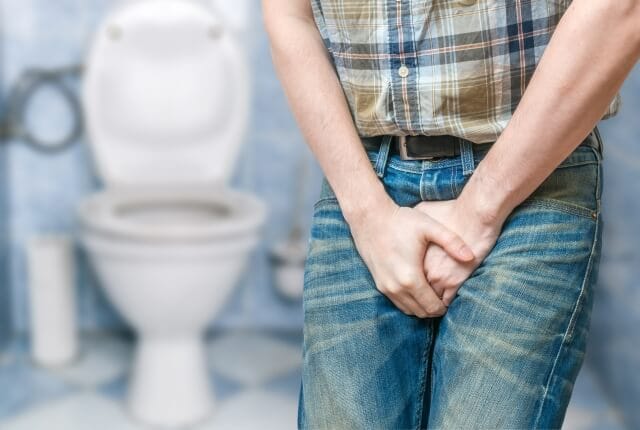About a year earlier, I began discovering I was getting up numerous times a night to pee. Once I thought of it, I understood I was peeing a lot throughout the day, too. The problem escalated and intensified till I was getting up three to five times a night, causing serious sleep deprivation. Desperate for an option, I got checked for interstitial cystitis, ovarian cysts, diabetes, kidney stones, you name it. However with all the outcomes unfavorable, I rather got the discouraging diagnosis of overactive bladder (OAB).
I explain an OAB medical diagnosis as frustrating because it doesn't have an easy cure. Your options are to go on medication, to see a physiotherapist who can teach you valuable exercises or an osteopath who can manipulate your nerves, to try a more extreme treatment like Bladder Botox injections or electrical bladder stimulation, or to make a lot of small changes to your way of life that can slowly ease the problem. "Although treatment options exist, lots of patients opt for natural and holistic remedies, considering that no single treatment has actually been proven to be most reliable," Caleb Backe, Health and Wellness Professional for Maple Holistics, tells Bustle.
I understand this holds true because when I make it through the day without caffeine and alcohol, prevent sugar at night, unwind prior to bed, and refrain from drinking anything a couple of hours prior to bedtime, I only get up to pee one or two times. I at first discounted this suggestions because, hey, I don't want to quit alcohol or caffeine or sugar or * gasp * quit working in the evening.
However after I tried a couple of medications that all had undesirable adverse effects, I realized way of life modifications deserved it-- and would probably make me healthier in the process.
If you're experiencing signs of overactive bladder, like a desire to pee 8 or more times a day, urinary leakages, or the need to awaken to pee twice or more per night, see a urologist. There are a lot of hidden conditions it might be connected to, and you can find out more about treatment options. Whether there is some hidden cause or it's simply plain old OAB, however, these methods must improve the condition.
1. Cut Back On These Bladder Irritants
If you're experiencing symptoms of overactive bladder, like a desire to pee 8 or more times a day, urinary leakages, or the need to wake up to pee twice or more per night, see a urologist. There are a great deal of hidden conditions it could be related to, and you can discover more about treatment options. Whether there is some hidden cause or it's just plain old OAB, though, these methods ought to enhance the condition.2. Cut Back On Diuretics Like Caffeine and Alcohol
Caffeine and alcohol are both double trouble, says Ramin. They're diuretics (they make you pee) and they promote bladder function. "If you struggle with urinary incontinence, among your worst opponents can be caffeinated beverages," he states. "Though it can be much easier stated than done, limiting or removing caffeine entirely has been known to be effective in decreasing and dealing with concerns of urinary incontinence in some women."3. Stay Hydrated
So what should you consume, then? When you're currently a peeing machine, drinking water might be the last thing you wish to do. According to a 1,000-person survey by Poise, almost half of females think that restricting water intake will limit their bladder leak. The problem with this is, dehydration dilutes your urine, making it more focused and consequently more irritating to your bladder, Grace partner and OB/GYN Dr. Jessica Shepherd tells Bustle.4. Do Kegel Exercises
Kegel workouts-- when you repeatedly squeeze and relax your PC muscles (the ones you utilize to keep in pee)-- have a lots of benefits, two of which are reducing urinary incontinence and urinary urgency, Brent Reider, an author and referee for medical and scientific peer review journals and designer of numerous FDA-cleared medical devices including the Yarlap, tells Bustle.5. Attempt Physical Therapy
Routine sessions with a pelvic flooring physical therapist can help retrain your bladder muscles and nerves through kegels and other workouts. "Although this modern kind of physiotherapy can be exceptionally time-consuming and aggravating, it offers patients the very best possibility of gaining back control of their bladder," says Backe. "These bladder drills function to retrain the brain to keep the power of the bladder's muscle contractions."6. Minimize Stress
When my bladder problems initially started, a psychic and a spiritual instinctive both informed me the primary cause was stress and anxiety. I didn't listen until my urologist, a Yale Medical School graduate, said the very same thing. The nerves in your brain link to the nerves in your bladder, he described, so stress and anxiety can lead to hypersensitive bladder nerves.After discovering this, I believe I figured out what happened to me. I was handling crippling sleeping disorders when my bladder problems began, and I 'd become compulsive about whatever that might keep me up, my bladder included. I 'd depend on bed for a few minutes then get up to pee again and again out of worry that if I didn't, I would not sleep. By thinking of my bladder a lot, I must have developed the connections in between it and my brain, establishing a hyper-awareness. That's my theory, at least.

Post a Comment